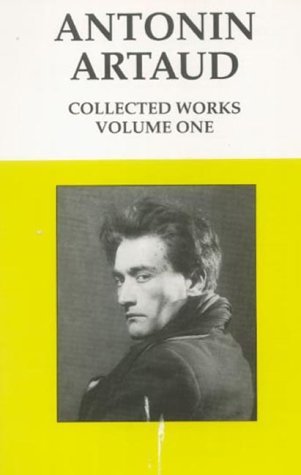What do you think?
Rate this book


247 pages, Paperback
First published January 1, 1968
Dear Sir,
..............................................................................
My mental life is completely shot through with petty doubts and unarguably certainties that are expressed in lucid and coherent words. And my weaknesses are of more trembling texture. They are themselves nebulous and ill-formulated. They have live roots, roots of anguish that reach the heart of life. But they have not turmoil of life. One does not feel in them the cosmic afflatus of a soul that has been shaken to its foundations. They are the weaknesses of a mind that have not pondered its weakness; if it had, it would render that weakness in dense and forceful words. And there, sir, lies the entire problem: to have within oneself the inseparable reality and material clarity of a feeling, to have them to such a degree that the feeling cannot but express itself, to have a wealth of words and formal constructions which might join in the dance, might serve one’s purpose – and at the very moment when the soul is about to organize its wealth, its discoveries, its revelation, at the unconscious moment when the thing is about to emanate, a higher and evil will attacks the soul like vitriol, attacks the word-and-image mass, attacks the mass of the feeling and leaves me painting as at the very door of life.
Now suppose that I feel physical the passing of this will, suppose that it shakes me with sudden, unexpected electricity, with repeated electricity. Supposed that each of my pondered instants is on certain shaken by these deep tornadoes which are not betrayed by anything external. And tell me whether any work of literature is compatible with such states. What brain could resist them? What personality would not be dissolved in them? If only I had the strength, I would sometimes indulge myself, in thought, in the luxury of subjecting to the mortification of such pressing pain any prominent mind, any writer, young or old, who produces and whose new-born thought carries weight in order to see what remained of him. One must not be to hasty in judging men, one must trust them to the point of absurdity, to their very dregs. These foolhardy works often seem to you the product of a mind which is not yet in possession of itself and which perhaps never will posses itself, but who knows what brain they conceal, what power of life, what mental fever which circumstances alone have reduced. Enough about myself and about my works that are still unborn. All I ask is to feel my brain.
Antonin Artaud- Letter dated 6 June 1924, pg. 41-42
YOUNG MAN: I love you and everything is fine.
GIRL [in a quickened, throbbing voice]: You love me and everything is fine.
YOUNG MAN [lower]: I love you and everything is fine.
GIRL [lower still]: You love me and everything is fine.
YOUNG MAN [suddenly turns aside]: I love you.
[Silence]
YOUNG MAN: Face me.
GIRL [suddenly turns aside]: There.
YOUNG MAN [in an exalted, high-pitched tone]: I love you. I am great, I am lucid, I am full, I am dense.
GIRL [same high-pitched tone]: We love each other.
YOUNG MAN: We are intense. Ah, what a well-made world.
[Silence: Noise like a huge wheel spinning, blowing out wind. A hurricane comes between them. At that moment two stars collide, and a succession of limbs of flesh fall. Then feet, hands, scalps, masks, colonnades, porticoes, temples, and alembics, falling slower and slower as if through space, then three scorpions one after the other and finally a frog, and a scarab which lands with heart-breaking, nauseating slowness.]
YOUNG MAN [shouting at the top of his voice]: Heaven's gone crazy.
[Looks up at the sky.]
YOUNG MAN: Let's run off.
[Pushes the GIRL off ahead of him]- Spurt of Blood, pg. 62-63
Who, in the heart of some anxiety at the bottom of certain dreams, has not know death as a marvelous, disruptive feeling which could never be confused with anything else of a mental order? One must have experienced with this exhausting crescendo of anguish which comes over one in waves and then swells one up as if forced by some unbearable bellows. Anguish which draws near then withdraws, each time stronger, more ponderous and replete. This is the body itself, having reached the limit of its strength and distension, and yet must go on. It is a sort of suction cup on the soul, whose acridity spread like acid into the furthermost bounds of the senses. And the soul cannot even fall back on a breakdown. For this distension itself is false. Death is not so easily satisfied. In the order of physical experience, this distension is like an inverted image of the contraction which takes possession of the mind over the whole extend of the living body.
[...]- Who, in their heart..., pg. 89
The sexual street comes to life
Along the ill-shaped fronts,
The cafés, chirping with crimes,
Uproot the avenues.
Sex's hands burn their pockets
While their bellies seethe down below;
The thoughts all clash,
The head less than the holes.- The Street, pg. 160